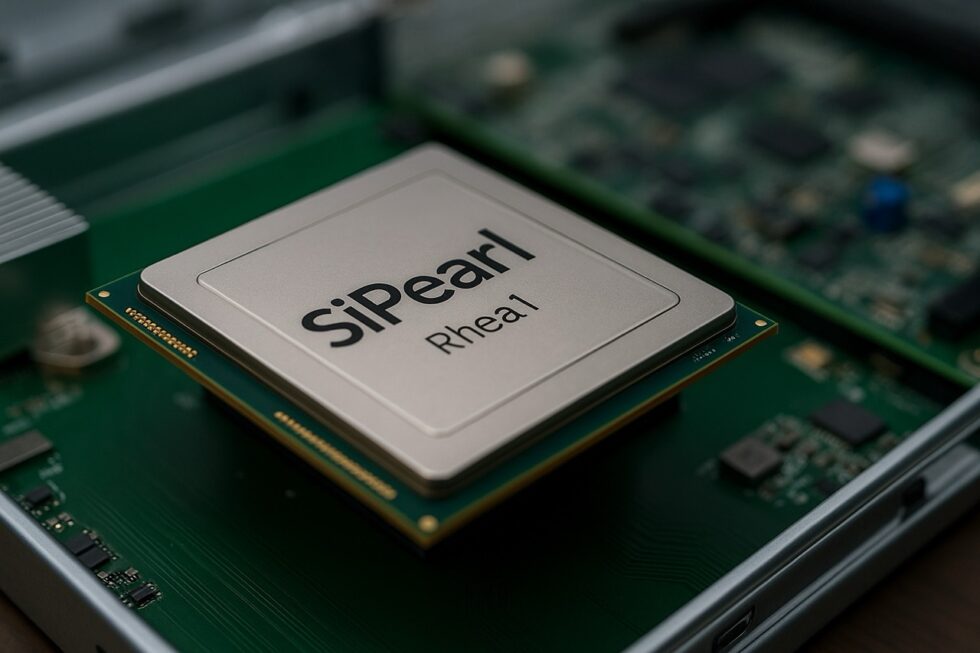Europe's Rhea1 Exascale CPU by SiPearl enters production at TSMC for Jupiter HPC

European chipmaker SiPearl has officially handed over its finalized 80-core Rhea1 processor design to contract manufacturer TSMC in Taiwan for production. At the same time, SiPearl introduced the Seine Reference Server, a prototype system built around the Rhea1 chip. This reference hardware is intended for validation, software development, and customer evaluation – forming a key part of several collaborative European HPC and cloud initiatives. G.Business reports this with reference to Heise Online and The Register.
The server comes in two configurations: one with a single CPU and up to two GPUs, suitable for AI inference and materials science; the second with dual CPUs, aimed at more compute-heavy workloads such as defense simulations and weather forecasting. Both configurations utilize the ARM-based Rhea1 processor with 80 Neoverse V1 cores, each equipped with two 256-bit SVE (Scalable Vector Extension) units for vectorized computation. Each chip also integrates high-bandwidth HBM2e memory.
Production is handled by TSMC using the N6 process (a refined 7nm class). Initial test samples are expected to ship to European partners in early 2026. The main customer is Germany’s Jülich Supercomputing Centre, which plans to integrate over 2,600 Rhea1 processors into more than 1,300 nodes of the Jupiter supercomputer. Jupiter recently ranked 4th on the global Top500 list and is being constructed by Eviden, an Atos subsidiary, using the BullSequana XH3000 direct liquid-cooled system.
The Rhea1 chip was developed as part of the European Processor Initiative (EPI) to provide Europe with an energy-efficient, sovereign HPC processor and reduce reliance on U.S. hardware. However, the project suffered delays: originally scheduled for release in 2021, the chip is already considered technically outdated by 2025, as both the Neoverse V1 cores and the N6 manufacturing node date back to 2020.
SiPearl is involved in several European projects aligned with Rhea1, including Aero, which builds an open-source software ecosystem around the chip; OpenCUBE, aimed at creating a validated full-stack European cloud platform; and Plasma-PEPSC, a EuroHPC project supporting plasma physics and exascale computing.
To fund ongoing development, SiPearl secured €130 million in Series A financing, backed by ARM, Atos, the European Investment Bank, the European Innovation Council, the French government (via French Tech Souveraineté), and a banking consortium led by Caisse d’Épargne Rhône-Alpes. Notably, Cathay Venture from Taiwan joined as the company’s first non-European investor. SiPearl currently employs about 200 people across France, Spain, and Italy and is already working on the next-generation Rhea2, which will adopt a chiplet architecture.
Stay connected for news that works — timely, factual, and free from opinion. Learn more about this topic and related developments here: chwoot: he sudo flaw that turns local Linux users into root – in seconds
FOTO: SiPearl